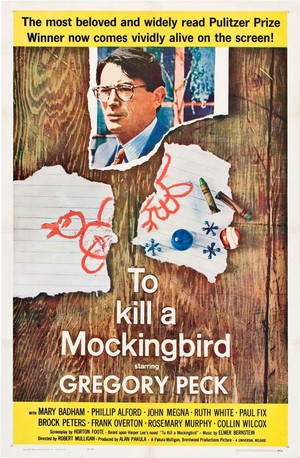
To Kill a Mockingbird (1962)

Raiting: ![]() 8,4 /10
8,4 /10
Genre: Drama
Director: Robert Mulligan
Stars: Gregory Peck, John Megna and Mary Badham
Country: United States
Release date: 20 December 1962
Length: 129 minutes


Raiting: ![]() 8,4 /10
8,4 /10
Genre: Drama
Director: Robert Mulligan
Stars: Gregory Peck, John Megna and Mary Badham
Country: United States
Release date: 20 December 1962
Length: 129 minutes